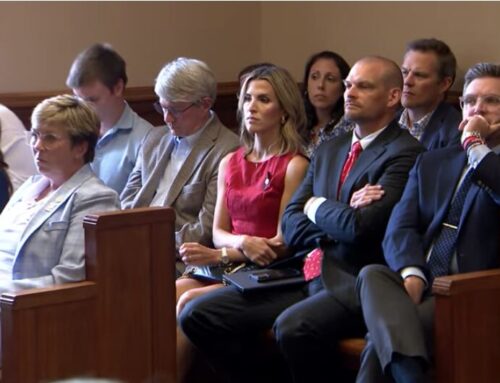Ohio Supreme Court rules dash cam videos are public records
In ruling that rejects a blanket investigatory exemption for police records, the Ohio Supreme Court ruled last week that dash cam video is in general a public record, subject to redactions.
The ruling has no legal effect in Tennessee, but is relevant because it deals with some of the same legal issues that have arisen in disputes with police here about what should be available to the public under the Tennessee Public Records Act. Some police departments refuse to release incident reports, saying they are part of the investigatory file. Currently, access to body cam footage is under study.
In Ohio, the Cincinnati Inquirer in 2015 requested dash cam video of a police chase that ended in a crash and a man’s arrest. Police claimed an investigation exemption, saying the record was part of its confidential investigatory file. Two months after the man pleaded guilty, police released the footage. According to Court News Ohio:
The newspaper argued the situation was “capable of repetition, yet evading review,” because the same situation could repeat itself with law enforcement withholding dash-cam video until a lawsuit is filed, then releasing it before a court considers the merits of the record requestor’s argument. The Court agreed to hear the case.
In a 7-0 ruling, the court said that some exceptions could be made for records deemed investigatory work product. But that exception is limited.
“(A) record that merely pertains to a law-enforcement matter does not constitute a confidential law-enforcement investigatory record unless the release of the record would create a high probability of disclosure of specific investigatory work product. Our review of the recordings at issue here leads us to conclude that a 90-second portion of the recordings contains specific investigatory work product, but the remainder does not,” Justice Judy French wrote in the majority opinion.
“…In the end, we hold that decisions about whether an exception to public-records disclosure applies to dash-cam recordings require a case-by-case review to determine whether the requested recordings contain investigative work product,” she wrote.
From Court News Ohio:
Justice French wrote the Public Records Act does not define “specific investigatory work product.” But the Court, beginning with its Steckman decision, applied the principles of attorney work product and concluded that the term encompasses any “notes, working papers, memoranda or similar materials, prepared by (law enforcement officials) in anticipation of litigation.” She further explained that in a criminal case the term pertains to information assembled by law enforcement in connection with a probable or pending criminal proceeding.
“The protection for work product emanates from a concern that investigators and prosecutors should be free to gather, assemble, and prepare case information and theories ‘without undue and needless interference,’” she wrote, citing the U.S. Supreme Court’s 1947 Hickman v. Taylor decision.
The patrol argued all recordings of stops and pursuits constitute investigatory work product because they document evidence that furthers prosecution. Justice French countered that position is at odds with federal and state precedent that work product is not entitled to absolute protection from disclosure, and the Court ruled against automatic shielding when it required incident reports to be released.
Read more:
Law Enforcement Dash-Cam Videos Are Public Records Subject to Redaction (Court News Ohio)
Ohio Supreme Court ruling in Cincinnati Enquirer v. Ohio Department of Public Safety (Ohio Supreme Court)
Ohio Supreme Court rules police dash-cam videos are generally public records (Cleveland.com)
Court rules on Enquirer suit: Dashcams are public record (Cincinnati Enquirer)




